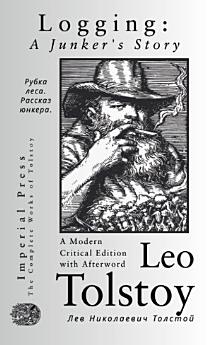Logging: A Junker's Story
Über dieses E-Book
The narrative follows a young Junker, or nobleman, as he grapples with the responsibilities of managing his estate and the lives of his serfs. The story provides a poignant commentary on the ethical conflicts inherent in the system of serfdom, as the protagonist navigates his role as both a benevolent overseer and an enforcer of a deeply unjust social structure. The protagonist's observations reveal the psychological burdens soldiers carry and the dissonance between romanticized notions of warfare and its grim realities. While not as renowned as Tolstoy's later masterpieces, this work remains significant for its early exploration of moral philosophy and social critique that would become central to his literary canon. The story's historical context, combined with its philosophical undertones about violence and human purpose, make it an important piece in understanding Tolstoy's intellectual evolution.
This critical reader's edition presents a modern translation of the original manuscript, crafted for the modern reader with clean, contemporary language and simplified sentence structures that clarify his complex Russian phrasing and specific antiquated references. Supplementary material enriches the text with autobiographical, historical, and linguistic context, including an afterword by the translator on Tolstoy’s personal history, impact, and intellectual legacy, an index of the philosophical concepts he employs—emphasizing Existentialism and influence by Schopenhauer—a comprehensive chronological list of his published writings, and a detailed timeline of his life, highlighting the personal relationships that shaped his philosophy.











